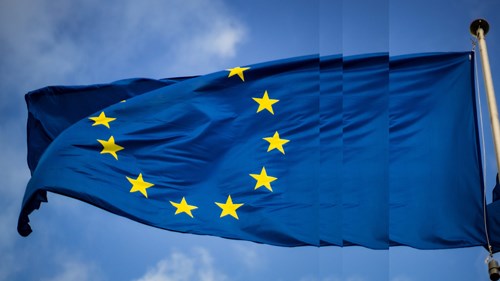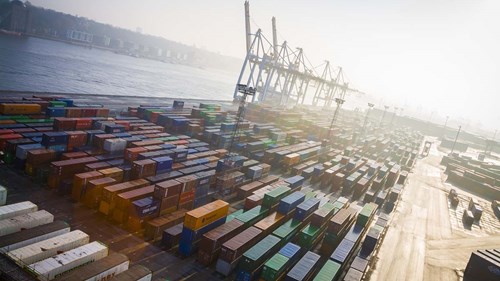Slovakia: COVID-19 pandemic and its legal implications on commercial relationships
The economic effects of the COVID-19 pandemic are already being felt in international and domestic trade. Factories are being closed down, movement of goods and people becomes more and more restricted, revenues of businesses have significantly dropped and businesses need to dismiss employees or cut their wages. The economic downturn has also direct and indirect effects on existing contracts and legal relationships of business partners.
Can the COVID-19 pandemic by used as an argument for exempting liability in case of breach of contractual obligations?
The effects of the COVID-19 pandemic on various businesses are already apparent and for certain businesses it becomes cumbersome or almost impossible to perform their obligations under existing contracts (e.g. delivery of goods, payments to suppliers).
COVID-19 pandemic and the public measures introduced to reduce its outbreak may be used in order to excuse the non-performance of contractual obligations, but only if they can be considered as a force majeure event.
Before assessing the possibility to use a force majeure event as an excuse for the non-performance of contractual obligations, it is necessary to review the existing contract in detail, if it includes a so-called force majeure event clause. Usually, when negotiating contracts, not much attention is paid to this clause, but in these difficult times, these clauses are becoming more and more important.
When the contract includes a force majeure event clause and the respective party aims to use it for excusing its non-performance, following actions need to be taken:
- Review the force majeure event clause, if it covers pandemics such as the existing COVID-19 pandemic (it may happen that this clause includes only events such as wars, acts of terrorism, uprisings, etc., but not pandemics).
- Assess if the force majeure event was unforeseeable at the conclusion of the contract (in other words, parties cannot be exempted from their liability in case of non-performance of contracts concluded at the time, when the COVID-19 pandemic and its effects on the business environment were already apparent/foreseeable).
- Assess if the COVID-19 pandemic is the reason for the defaulting party’s non-performance and if so assess what this means for the other contractual party. For example, usually this could mean that the other party cannot terminate the contract or claim damages or contractual penalties – however, the relating contract needs to be reviewed in detail in order to assess this.
Even if the contract does not include a force majeure event clause, the Slovak Commercial Code regulates the exemption of liability in case of a unforeseeable, unavoidable and insurmountable obstacles that occurred independently of the will of the respective contractual party, i.e. an event of force majeure. If the party can prove that its non-performance was caused by a force majeure event, it will not be obliged to compensate damages of the other party.
It is worth mentioning that based on Slovak law a force majeure event does not affect the obligation to pay contractual penalties nor does it restrict the other party to terminate the contract, unless agreed otherwise contractually.
However, in commercial relationships, the above mentioned statutory regulations may be contractually excluded by the parties – in such case, they are not applicable.
Given the above considerations, the multitude of possible scenarios and the fact that certain commercial contracts may also be governed by foreign law make it practically impossible to draw the conclusion that the COVID-19 pandemic will result in exemption from liability in cases of non-performance of contractual obligations. Therefore, it is essential to evaluate the existence of a force majeure event on a case-by-case basis.
Can legal obligations be cancelled as a result of the COVID-19 pandemic?
The occurrence of a force majeure event does not mean, that the defaulting party’s obligation to perform is cancelled. The above mentioned exemption from the defaulting party’s liability lasts for the duration of the force majeure event. After this event lasts no longer, the defaulting party needs to perform.
However, if the force majeure event would have more of a permanent nature, the defaulting party’s non-performance could be considered as a so-called impossibility to perform and in such case, the obligation of the defaulting party to perform is cancelled. It is not impossible to perform, if the performance is possible under harder conditions, with increased costs or after the agreed time.
The defaulting party needs to inform the other party about the impossibility to perform within undue delay after it becomes aware of the force majeure event, which hinders the party’s ability to perform. If the other party already paid for the performance, the compensation needs to be returned by the defaulting party.
Since the impossibility to perform was not caused personally by the defaulting party, it must not compensate damages caused to the other party, unless the defaulting party failed to inform the other party about its impossibility to perform within undue delay after it became aware of it. Again, this statutory provision can be contractually adjusted or even excluded.
Can hardship clauses be invoked as a result of the COVID-19 pandemic?
In the unfavourable context of the COVID-19 pandemic, situations can likewise be encountered in which the fulfilment of a contract becomes excessively burdensome due to exceptional circumstances, but not impossible.
In various CEE countries, so-called hardship clauses are recognized, which state that if continued performance of a contractual obligation has become excessively burdensome because of a force majeure event, the parties need to negotiate reasonable and equitable adaptation of the contract or each of them may unilaterally change the conditions.
Unfortunately, hardship clauses are not recognized in Slovakia.









